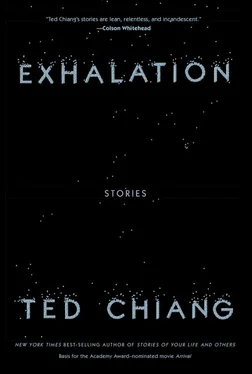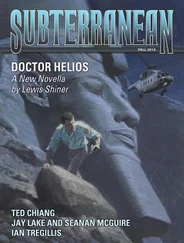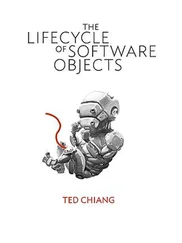Once that was done, Morrow began setting up the dummy account to receive the funds. He wasn’t expecting a fortune from this; Mrs. Oehlsen presumably had some money saved, but she wasn’t wealthy. The big score would come, if they were lucky, from Nat’s support group.
As part of his job for SelfTalk, Morrow maintained a list of support groups for people struggling with their prisms. He knew some people in those groups would wind up selling their prisms, so he’d regularly go to the churches and community centers where those groups met and put up flyers: WE’LL BUY YOUR PRISM; TOP DOLLAR PAID. Three months ago Morrow had been stapling a flyer to a bulletin board when a couple of support-group members were standing nearby, cups of coffee in their hand, chatting before the room opened up. Morrow could hear them talking.
“Do you ever wonder if you ruined someone else’s life by activating your prism?”
“What do you mean?”
“Like, maybe someone might die in a car crash in the other branch but not in this one, and all because you activated the prism.”
“Now that you mention it, you remember that car crash in Hollywood a few months back? In my paraself’s branch, Scott died in that crash instead of Roderick.”
“That’s exactly the sort of thing I mean. You activating the prism had a huge impact on someone else’s life. Do you ever think about that?”
“Not really. Maybe I’m too self-absorbed, but I’m usually thinking about my own life.”
The guy had been talking about a celebrity couple, pop singer Scott Otsuka and movie star Roderick Ferris. They’d been en route to a movie premiere when their limousine had been hit by a drunk driver; Roderick had been killed, and Scott was left a grieving widower. But this guy’s prism connected to a branch where Scott had been the one who was killed and Roderick was the survivor.
That prism could be worth a lot of money, but Morrow couldn’t just go up to him and offer to buy it. So he had sent Nat into the group to pretend she was someone wanting to kick her prism habit. The guy’s name was Lyle, and her job was to make friends with him. Nothing sexual—Morrow knew better than to ask her to do that—just a support-group buddy, someone he liked and trusted. That way she could gently nudge him in the direction of giving up his prism. And when he was ready, Nat would tell him she was ready to get rid of hers, too, and she knew someone who was paying good prices for used prisms, so how about the two of them sell theirs together? And then she’d bring Lyle to SelfTalk, where Morrow would buy both of their prisms.
Then Morrow would arrange a visit with Scott Otsuka and offer to sell him a prism that let him talk with his dead husband.
· · ·
No prism would ever allow communication to a branch that had split off prior to its moment of activation, so there’d be no reports from branches where Kennedy hadn’t been assassinated or where the Mongols had invaded western Europe. By the same token, there were no fortunes to be made by patenting inventions gleaned from branches where technological progress had taken a different route. If there were going to be any practical benefits gained from using a prism, they would have to derive from subsequent divergences, not earlier ones.
Occasionally, random variations made it possible to avert an accident: once, when a passenger plane crashed, the FAA notified its counterpart in another branch, which was able to ground its version of the plane and perform a closer inspection, identifying a component in the hydraulic system that was on the verge of failing. But there was nothing to be done about accidents caused by human error, which were different in every branch. Nor was it possible to send advance notice of natural disasters: a hurricane in one said nothing about the likelihood of a hurricane in another, while earthquakes happened simultaneously in every branch, so no early warning was possible.
An army general purchased a prism because he thought he’d be able to use a branch as a supremely realistic military simulation: he intended to have his parallel self make an aggressive move in the other branch so they could see what the response was. He discovered the flaw in this plan as soon as he communicated with his parallel self, who intended to use him in exactly the same way. Every branch was of paramount importance to its inhabitants; no one was willing to act as a guinea pig for anyone else.
What prisms did offer was a way to study the mechanisms of historical change. Researchers began comparing news headlines across branches, looking for discrepancies and then investigating their causes. In some cases the divergence arose from an explicitly random event, such as a wanted fugitive being arrested during a traffic stop. In other cases the divergence was the result of an individual choosing different actions in two branches, in which case researchers would request an interview, but if the person was a public figure, they rarely offered details on why they had made the choice they did. For cases that didn’t fall into those categories, the researchers had to comb through the news stories from the preceding weeks to try to identify the causes of the discrepancy, which usually led to scrutinizing the stochastic jitters of the stock market or social media.
Then the researchers would continue to monitor the news over the following weeks and months to see how the divergences grew over time. They looked for a classic “for want of a nail, a kingdom was lost” scenario, where the ripples expanded steadily but in an intelligible manner. Instead what they found were other small discrepancies, unrelated to the one they’d originally discovered; the weather was instigating changes everywhere, all the time. By the time a significant political divergence was observed, it was difficult to ascertain what the cause had been. The problem was exacerbated by the fact that every study had to end once a prism’s pad was exhausted; no matter how interesting any particular divergence might be, the connection between branches was always temporary.
In the private sector, entrepreneurs realized that while the information obtained from prisms had limited instrumental value, it was something that could be sold as content to consumers. A new kind of data broker emerged: a company would exchange news about current events with its parallel versions and sell the information to subscribers. Sports news and celebrity gossip were the easiest to sell; people were often just as interested in what their favorite stars did in other branches as in what they did in their own. Hard-core sports fans collected information from multiple branches and argued about which team had the best overall performance and whether that was more important than their performance in any individual branch. Readers compared different versions of novels published in different branches, with the result that authors faced competition from pirated copies of books they might have written. As prisms with larger pads were developed, the same thing began happening with music, and then film.
· · ·
At the first meeting she attended, Nat had been incredulous at the things its attendees talked about: a man obsessively worried that his paraself was having more fun than he was, a woman trapped in a spiral of doubt because her paraself voted for a different candidate than she did. Were these the sorts of things regular people thought of as problems? Waking up covered in your own vomit; having to fuck your dealer because you couldn’t scrape together enough cash: those were real problems. Nat had momentarily fantasized about telling everyone in the group they should just get over themselves, but of course she didn’t, and not just because it would have blown her cover. She was in no position to judge these people. So what if they felt sorry for themselves? Better to wallow in self-pity over nothing than to have actually screwed up your life.
Читать дальше









